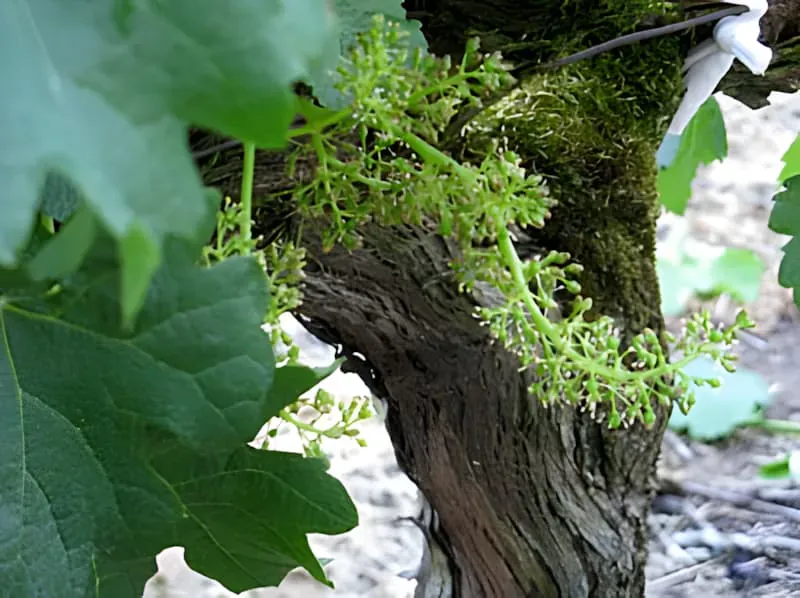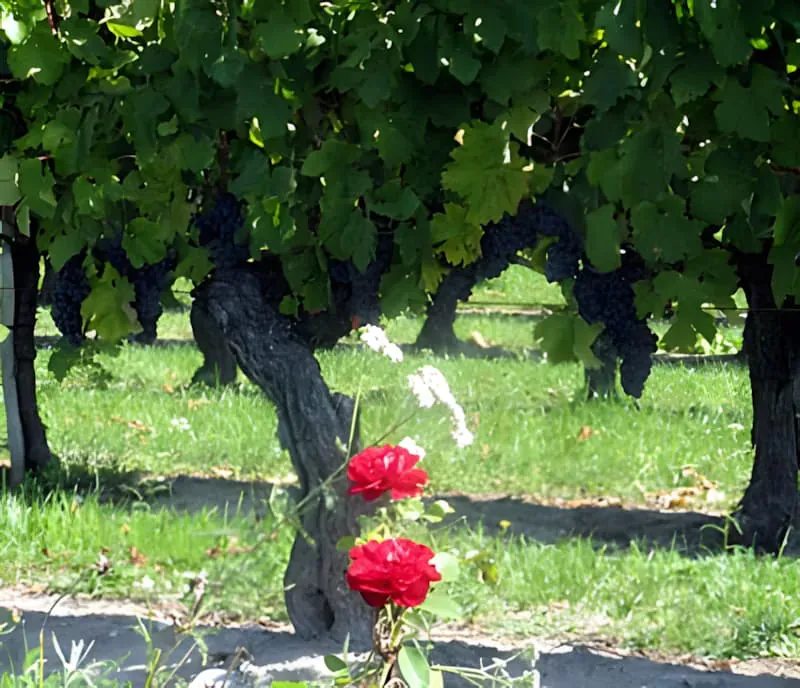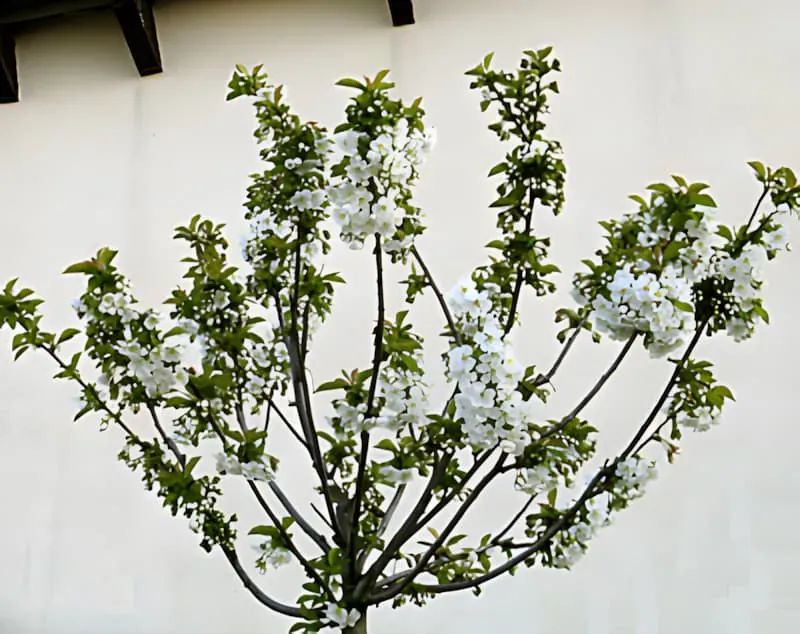Yesterday it snowed. 
When the men arrived to work, it was -6 Celsius which is equal to 21 Fahrenheit.
Since it was too cold to prune, they proceeded to repair and tighten the wires that support our vines in the fields. They take such pride in their work.
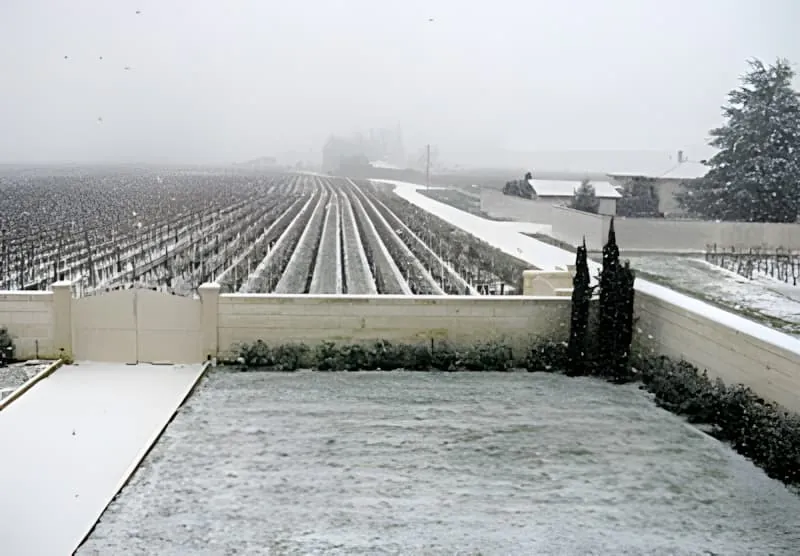
Soon the snow began. Large flakes covered us in a blanket of white. It is a rare occurrence here. 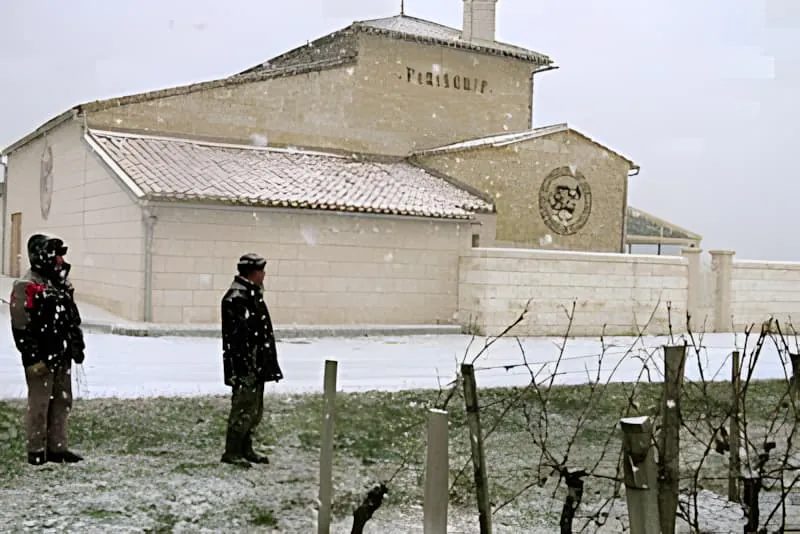
Snow is referred to as “ poor man’s fertilizer”. Snow contains nutrients and also a lot of moisture. If that snow falls on ground that's not frozen, then the nutrients and moisture in that snow can penetrate into the soil and it will actually benefit the vines.
The amount of nitrogen deposited by rain or snow doesn't depend on the amount of precipitation. In fact, as the amount of precipitation increased, the concentration of nitrogen in that precipitation decreased. In other words, rain or snow washes the nitrogen out of the air, if it keeps raining or snowing after a certain point, the available nitrogen up there gets depleted.




